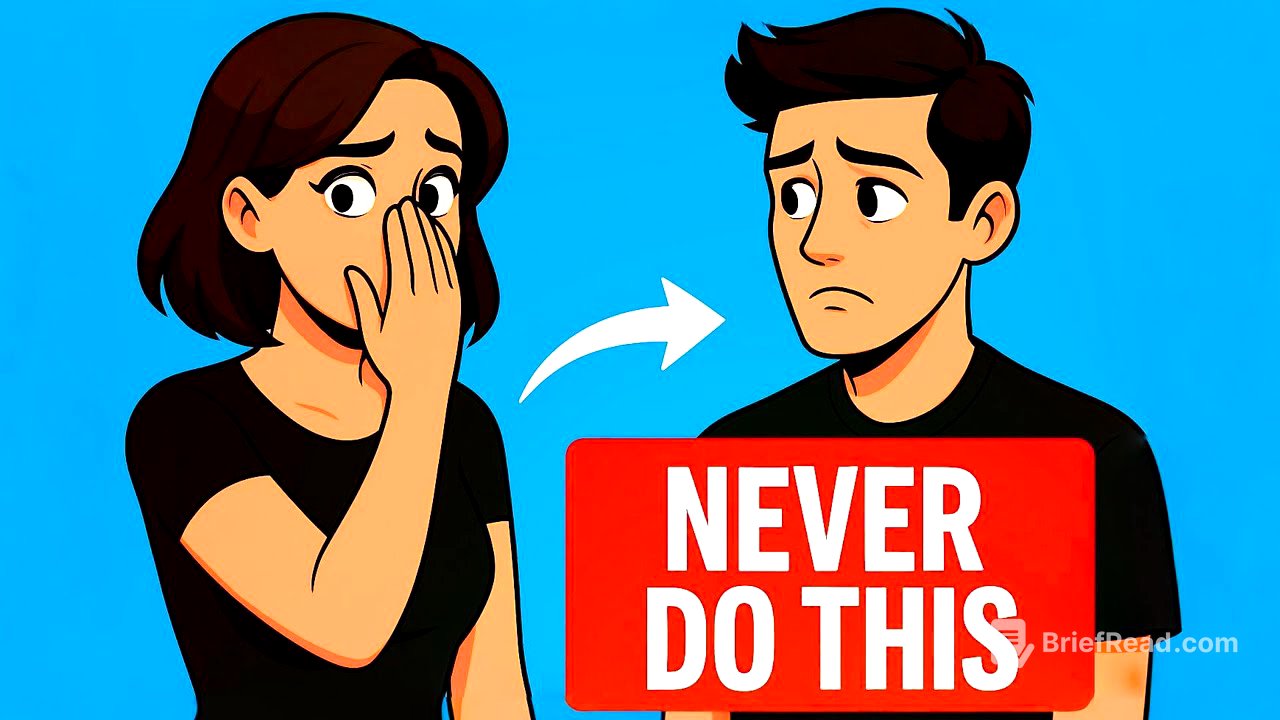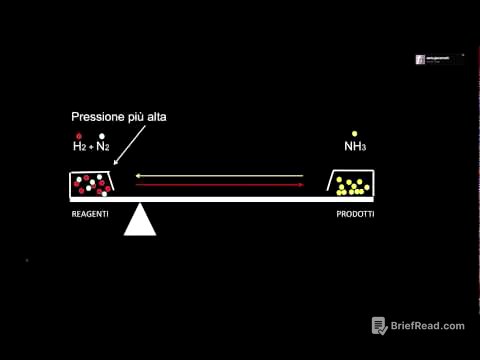TLDR;
This video highlights seven subtle, everyday habits that can damage relationships. It emphasises that these behaviours, often unnoticed, erode connections and lead to feelings of distance. The video encourages self-awareness and change to foster healthier relationships by avoiding using vulnerability as a weapon, constant comparison, neglecting small gestures, using humour to avoid depth, craving constant validation, failing to set healthy boundaries, and overcompensating.
- Using vulnerability as a weapon
- Constantly comparing yourself to others
- Neglecting the power of small gestures
- Overusing humour to avoid depth
- Craving validation at every turn
- Failing to set healthy boundaries
- Overcompensating in relationships
Using Vulnerability as a Weapon [0:35]
Sharing emotions builds connections, but using vulnerability to manipulate or gain sympathy creates resentment. Constantly unloading struggles without considering the other person's emotional capacity turns you into a source of emotional labour. Genuine vulnerability involves mutual trust and balance, sharing because you value the other person's support, not to shift focus onto your pain. Building trust gradually through listening and balanced sharing strengthens relationships.
Constantly Comparing Yourself to Others [1:55]
Comparing yourself to others diminishes joy and harms relationships. Minimising others' achievements due to jealousy or using their success to highlight your failures creates a toxic environment. People notice when you make everything about you, turning their joy into your pity party. Breaking this habit involves gratitude, celebrating others' achievements, and recognising that their success doesn't diminish your worth.
Neglecting the Power of Small Gestures [3:07]
Small, consistent actions build lasting relationships, while neglecting them creates distance and resentment. Forgetting to check in or acknowledge someone's contributions sends the message that they're not important. Small acts of care, like remembering a coffee order or saying thank you, reinforce bonds. Thoughtful gestures, however small, create goodwill and sustain relationships through tough times.
Overusing Humour to Avoid Depth [4:06]
Using humour as a default response can alienate people, making you seem emotionally unavailable. Deflecting serious conversations with jokes prevents deeper connections. While humour is a gift, sincerity is sometimes needed. Acknowledge others' feelings instead of lightening the mood. Balancing humour with depth shows you're trustworthy and capable of handling serious emotions.
Craving Validation at Every Turn [5:13]
Constantly seeking validation from others is draining. Fishing for compliments places an emotional burden on those around you, leading them to distance themselves. Start validating yourself by celebrating achievements privately and trusting your instincts. When you stop outsourcing your self-worth, relationships become more balanced and enjoyable.
Failing to Set Healthy Boundaries [6:09]
Saying yes to everything is self-destructive. By not setting boundaries, you devalue your time and energy, leading to burnout and resentment. Others may take you for granted, losing respect for your limits. Setting boundaries is essential, not selfish. Start small by saying no when needed, creating healthier dynamics and teaching others to value your time.
Overcompensating in Relationships [7:00]
Doing too much, like constantly paying or giving unsolicited gifts, makes people uncomfortable and creates a transactional dynamic. Overcompensation stems from insecurity, feeling the need to earn affection. Genuine relationships don't require overextending yourself. Trust that your presence is enough, focusing on shared effort and mutual respect for lasting connections.








